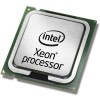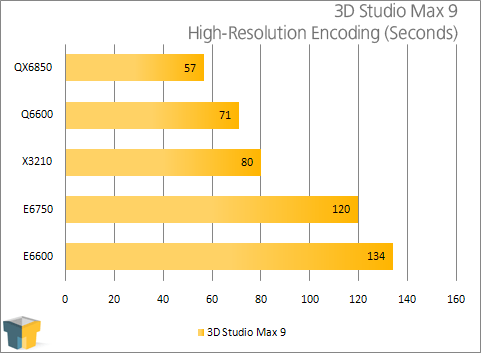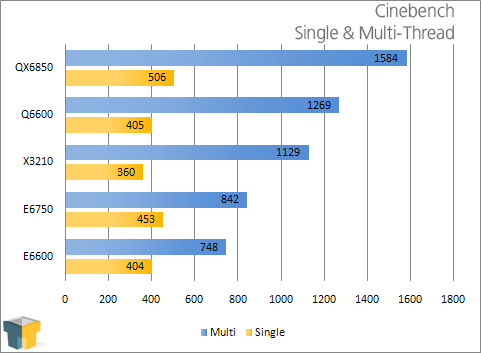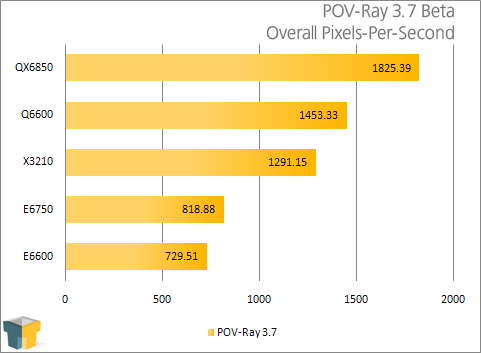- Qualcomm Launches Snapdragon 4 Gen 2 Mobile Platform
- AMD Launches Ryzen PRO 7000 Series Mobile & Desktop Platform
- Intel Launches Sleek Single-Slot Arc Pro A60 Workstation Graphics Card
- NVIDIA Announces Latest Ada Lovelace Additions: GeForce RTX 4060 Ti & RTX 4060
- Maxon Redshift With AMD Radeon GPU Rendering Support Now Available
Intel Xeon X3210 2.13GHz Quad-Core B3-Revision

One of the most popular CPUs on the market right now is the Q6600, thanks to the fact that it offers four cores at 2.4GHz. But what about the Xeon’s? Their prices are also more affordable now, with their X3210 2.13GHz retailing for $260. Read on as we pit this Quad-Core against the rest of our fleet.
Page 5 – Workstation Benches
One crowd that benefits from faster processors and additional cores is the workstation crowd, those who render huge models that can take hours to complete. 3D Studio Max has been multithreaded for quite a while, even back in the day when some workstations had two physical CPUs installed, with one core each.
This is one real-world scenario where a Quad-Core processor can actually increase the rendering time upwards of 3.8x, so the benefits of owning such a chip is undeniable. For our test, we render an object with 406 objects and 106,000 vertices to a 3200×2400 resolution.

As we mentioned earlier, sometimes the lower frequency won’t matter, when extra cores are put to good use. Compared to our faster Dual-Core E6750, the X3210 still proved 40 seconds faster overall.
Like 3D Studio Max, Cinebench emulates a similar scenario, where you render a high-resolution image. The nice thing about Cinebench though, is that it spits out a nice, clean number and also shows you your gain when moving to multi-threaded rendering.

The results here reflect those of our 3D Studio Max 9 tests… extra cores are a blessing.
POV-Ray is another program with the sole purpose of creating amazing scenes and models. Similar to Cinebench, POV-Ray includes a multithreaded benchmark that will render a large model and output a score of PPS, or pixels per second.

The results with POV-Ray are again as we expected. The lower clock speed means nothing when extra cores are put to good use.
Support our efforts! With ad revenue at an all-time low for written websites, we're relying more than ever on reader support to help us continue putting so much effort into this type of content. You can support us by becoming a Patron, or by using our Amazon shopping affiliate links listed through our articles. Thanks for your support!





